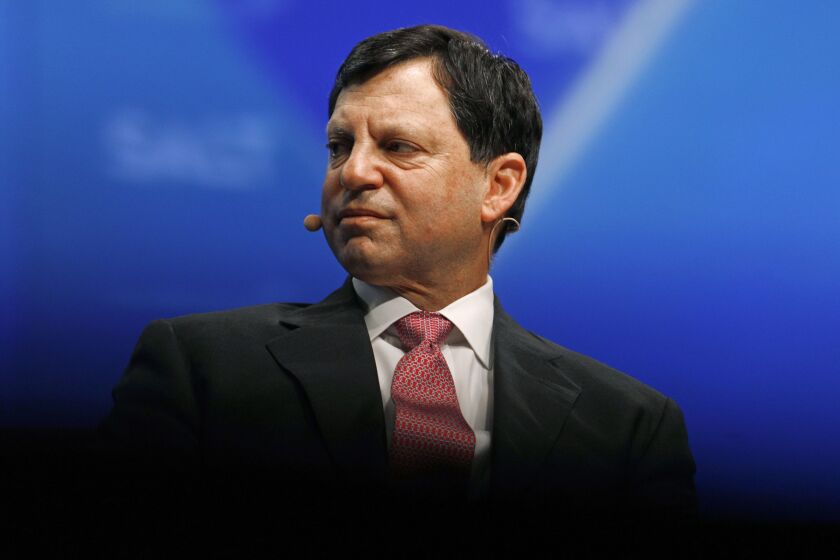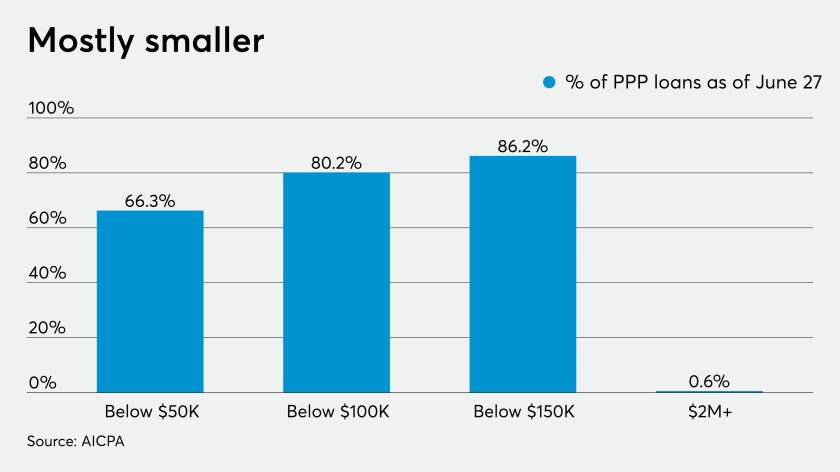When Fiserv purchased First Data in 2019, it was part of an industrywide push to combine bank and merchant technology under one roof. A year later, a key piece of First Data’s technology — and its top executive — have become Fiserv’s path through the pandemic.
As payments volume across the world plummeted, Fiserv's Clover point of sale system, which it picked up from First Data, chugged along. Clover transactions were up 40% for the quarter through February, and up 29% for the entire quarter despite the downward pressure on payment flows due to business closings, Fiserv disclosed in its earnings report Thursday. Fiserv also reported it has 36 new e-commerce clients and a 90% spike in Zelle P2P volume during the quarter, indicating that the shift to digital is on both the merchant and consumer side.
Fiserv’s quarterly report also served as a formal announcement that Frank Bisignano, the longtime First Data CEO and former JPMorgan Chase executive, has been spearheading Fiserv’s coronavirus response as Fiserv’s president and COO, the job he assumed after the merger. Bisignano will become CEO on July 1, as current CEO Jeff Yabuki transitions to executive chairman through the end of the year.
“A crisis waits for no one, whether it’s moving 40,000 people to remote status or introducing alternative means for merchant acceptance,” Bisignano said during the earnings call, noting Fiserv’s $500 million budget for innovation in enterprise digital, merchant e-commerce, independent software vendors and Clover was intact and would not change.

Clover has been the centerpiece of First Data’s technology-driven diversification over the past few years, helping it recover from an earlier slump. Using a mix of hardware and software, Clover has ties to digital ordering, merchant services and enterprise management. It’s also helped First Data push into international markets, incrementally larger merchant categories and flexible service and checkout experiences for restaurants — a category that faces a uniquely complex challenge for reopening after the pandemic eases.
Competitors, such as FIS and Global Payments, have also been bulking up through multibillion-dollar mergers; Global Payments even has its own rival to Clover called Vital POS.Fiserv also faces competition from fintechs like Square and Stripe, which are focused on the same merchant categories as Clover.
As the time comes for businesses to apply for PPP loan forgiveness, CPAs can provide vital assistance to ensure success for their clients.
Senate Majority Leader Mitch McConnell on Wednesday closed off chances that the Senate would pass anytime soon a House bill that would give most Americans $2,000 stimulus payments.
The initial direct deposits of the second round of economic impact payments are already going out to taxpayers.
It’s here where the consolidations of 2019 may prove helpful for incumbents such as Fiserv, FIS and Global Payments.
“This has mostly insulated these companies from the downturn of consumer payment transactions,” said Ray Pucci, director of the merchant services practice at Mercator Advisory Group. “The consolidated companies are more diversified with a mix of payments, processing and banking. They’re also mostly finished with their corporate integration.”
The challenge for Fiserv will be to connect its base of community bank clients to small businesses such as restaurants, which need to improve their ability to offer mobile ordering and reservations accessible via a digital menu. This will allow the restaurants to reduce how much patrons and staff touch physical cards or menus by making the entire experience contactless and software-based. If the restaurant’s bank can provide this service as part of its own software, that allows the restaurant to avoid using gig economy apps, which handle these tasks but take a share of the revenue.
“It’s important that Clover and payment services shine. That’s what will get them to the other side,” said Richard Crone, a payments consultant. “Clover is the utility box. It has to plug into all of the other stuff.”
Fiserv processed “tens of thousands” of loans to enable small businesses to access Paycheck Protection Program funding and has expedited new use cases through its digital money network, the company said. It also placed Clover’s new order-ahead feature in 1,800 restaurants.
Bisignano still has ample experience in banking and merchant acquiring, the two sides of the industry that have to work together to get merchants back on their feet.
Bisignano "is up to the task," Crone said. "He knows all of the moving parts. The key is to focus on the merchants. If they can get the banks to come along for the ride, that’s good.”
Fiserv also noted it’s increased cost synergies tied the First Data acquisition to $1.2 billion from $300 million. Yabuki contends this would mitigate the impacts of an economic recession. And like Mastercard and Visa, Fiserv reports stabilization and improvements in transaction flows from late March and April during the onset of the global shutdowns, and the early reopenings in May.
The economic environment has enabled managers to focus on consolidating systems, data centers and operations, said Eric Grover, a principal at Intrepid Ventures.
“For merchants that aren’t closed, payment processing is more critical than ever,” Grover said. “Processors should be pushing omnichannel commerce, contactless and eliminating signature requirements at the physical point of sale.”






